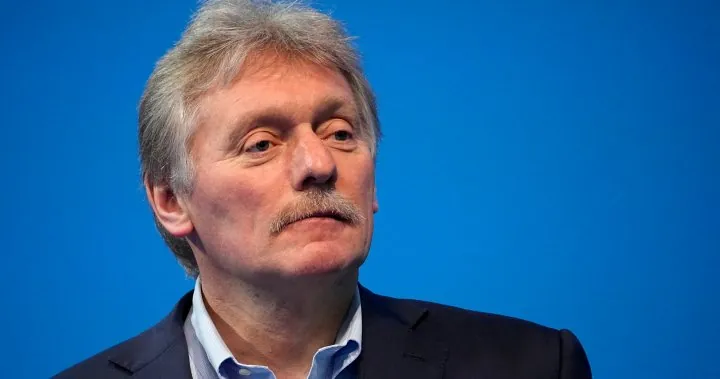
Russia Warns U.S. Missile Decision Could Ignite a New Chapter in Ukraine War: What You Need to Know
2024-11-18
Author: Amelia
Game-Changing Decision
In a game-changing move, President Joe Biden has authorized Ukraine to strike targets within Russia with U.S.-supplied long-range missiles, a decision that has triggered a wave of ominous warnings from Moscow, cautious optimism from Kyiv, and support from several Western allies. This policy shift comes just as the Ukraine conflict approaches its 1,000-day milestone, adding a new layer of complexity to an already volatile situation.
Recent Attacks and Humanitarian Impact
The announcement coincided with a tragic day for Ukraine, marked by a devastating Russian ballistic missile attack utilizing cluster munitions in Sumy, which resulted in the deaths of at least 11 individuals, including two children, and left dozens injured. The violence did not stop there; another missile strike in Odesa claimed eight more lives and injured 18 other civilians. Such relentless attacks underscore the grave humanitarian toll of this ongoing conflict.
Changes in U.S. Policy
U.S. officials revealed that Washington is relaxing its restrictions on Ukraine's use of American arms, a notable shift after months of hesitance due to fears of escalating tensions and a possible clash between Russia and NATO. This development follows alarming reports that North Korean troops are assisting Russian forces in their efforts against Ukraine, especially in the contested Kursk region.
Potential for Escalation
While details regarding the specifics of the new firing guidelines remain murky, the potential for escalation is evident. Kremlin spokesman Dmitry Peskov pointed to a stark warning from President Vladimir Putin, who previously stated that allowing Ukraine to strike Russia would alter the "very nature" of the conflict. Peskov emphasized that such actions would suggest the West, including NATO nations, is effectively at war with Russia.
Putin's Previous Threats
The Kremlin's previous rhetoric has been equally alarming; last June, Putin threatened to provide long-range capabilities to allies for attacking Western targets, framing the prospect of nuclear weapon use as a necessary response if Russia's sovereignty was threatened.
Reactions from Leaders
President-elect Donald Trump, soon to be in office, has cast doubt over the continuation of U.S. military support for Ukraine, pledging to bring an end to the war swiftly, thereby adding to the uncertainty around the West's commitment to help Kyiv.
Ukrainian President Volodymyr Zelenskyy acknowledged the shift in approval for strikes on Russian territory but portrayed a cautious optimism. In his recent address, he remarked, “Missiles will speak for themselves,” emphasizing the importance of decisive action over mere words.
Condemnation from Russia
Russian officials wasted no time in condemning the U.S. decision, issuing dire warnings of possible consequences. Senior lawmaker Leonid Slutsky accused Biden of wanting to be remembered as "Bloody Joe," while other politicians cautioned that this move could be a harbinger of a third world war. State media predictions painted a frightening picture of the future, suggesting disastrous repercussions for NATO's involvement.
Mixed Reactions from NATO
On the other hand, some leaders from NATO’s Baltic states greeted this policy change with a mix of relief and caution. Lithuania’s Foreign Minister Gabrielius Landsbergis refrained from celebrating, wary of possible limits still hindering Ukraine's access to military support. Meanwhile, Estonia’s Foreign Minister Margus Tsahkna hailed the easing of restrictions, urging for unbridled military support amidst a worsening security situation.
Conclusion
As the Ukraine conflict escalates, both sides brace for an uncertain future. The stakes continue to rise, with the world watching closely to see how these developments unfold. Stay tuned as we bring you the latest news on this evolving story—things may take a dramatic turn at any moment!









 Brasil (PT)
Brasil (PT)
 Canada (EN)
Canada (EN)
 Chile (ES)
Chile (ES)
 España (ES)
España (ES)
 France (FR)
France (FR)
 Hong Kong (EN)
Hong Kong (EN)
 Italia (IT)
Italia (IT)
 日本 (JA)
日本 (JA)
 Magyarország (HU)
Magyarország (HU)
 Norge (NO)
Norge (NO)
 Polska (PL)
Polska (PL)
 Schweiz (DE)
Schweiz (DE)
 Singapore (EN)
Singapore (EN)
 Sverige (SV)
Sverige (SV)
 Suomi (FI)
Suomi (FI)
 Türkiye (TR)
Türkiye (TR)